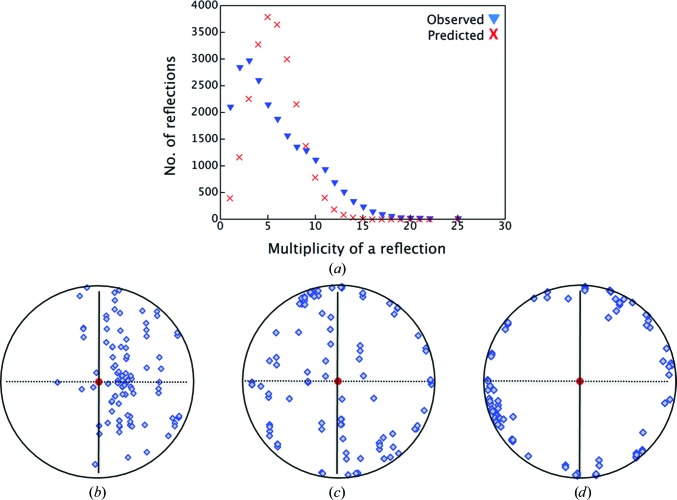Figure 5.
Distribution of reflection multiplicity and crystal orientation in an IMISXcryo data set recorded using 104 β2AR crystals. (a) Blue, observed multiplicity. Red, binomial distribution of multiplicity predicted for an effective crystal rotation range of 2.5°. (b) Projection of the unit-cell a axis along the X-ray beam direction (red dot). The horizontal axis (dotted line) is the rotation-spindle direction and the vertical axis (solid line) is perpendicular to both the X-ray beam and rotation-spindle directions. Each blue diamond represents one crystal. For any given crystal in the set, the angle between its unit-cell axis and the X-ray beam direction is indicated by the position of the corresponding diamond on a circle. These range from 90° on the limiting circle to 0 or 180° at the centre of the circle. (c) Projection of the unit-cell b axis along the X-ray beam direction. (d) Projection of the unit-cell c axis along the X-ray beam direction. The skewed distribution in (a) is consistent with the preferential crystal orientation with the a axis of the unit cell close to the X-ray beam direction (b).

